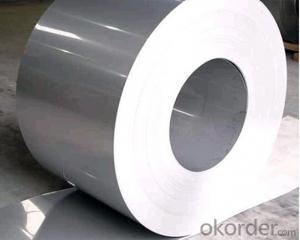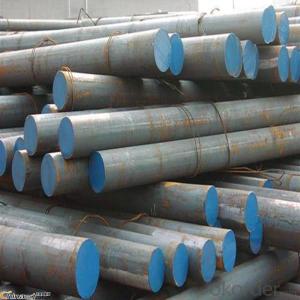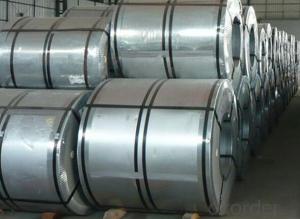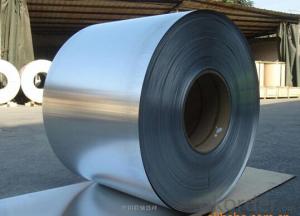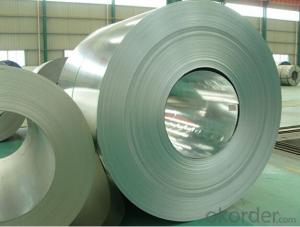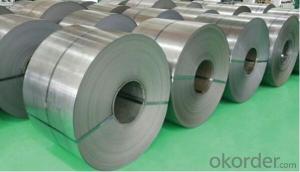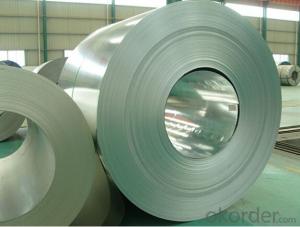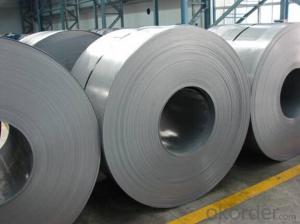Grade JIS G3141-SPCD-SD Galvanized Steel Coil
- Loading Port:
- Tianjin
- Payment Terms:
- TT OR LC
- Min Order Qty:
- 3 m.t.
- Supply Capability:
- 10000 m.t./month
OKorder Service Pledge
OKorder Financial Service
You Might Also Like
Specification
Grade JIS G3141-SPCD-SD Galvanized Steel Coil
Specification of JIS G3141-SPCD-SD Galvanized Steel Coil
1. Galvanized Steel Coil
(1) Width: 600-1570mm
(2) Thickness: 0.13-5.0mm
(3) Grade: JIS G3302-SGCC-SGC570, SGCH (full hard-G550), SGHC-SGH540
EN10346-DX51D+Z, DX53D+Z, S250GD-S550GD
ASTM A653-CS-B, SS255-SS550
(4) Zinc Coating: Z40g/m2~Z500g/m2 (both side total coating thickness)
2. Galvalume Steel Coil
(1) Width: 600~1500mm
(2) Thickness: 0.15~2.30mm
(3) Grade: JIS G3321-SGLCC, SGLC400-570, (G550)
EN10346-DX51D+AZ, DX53D+AZ, S250-S550
ASTM A792M CS-B, SS255-SS550
(4) AZ Coating: AZ50~AZ185g/m2
3. Prepainted Galvanized Steel Coil (PPGI)
(1) Width: 600~1250mm
(2) Thickness: 0.19~1.50mm
(3) Grade: JIS G3312-CGCC, CGC340-570, (G550)
ASTM A755M CS-B, SS255-SS550
(4) Zinc Coating: Z40g/m2~Z500g/m2 (both side total coating thickness)
4. Prepainted Galvanized Steel Coil (PPGL)
(1) Width: 600~1250mm
(2) Thickness: 0.20~1.50mm
(3) Grade: JIS G3322-CGLCC, CGLC340-570, (G550)
ASTM A755M CS-B, SS255-SS550
(4) AZ Coating: AZ50~AZ185g/m2 (both side total coating thickness)
5. Cold Rolled Steel Coil (Soft) (for further information, pls click the product name)
(1) Width: 600~1570mm
(2) Thickness: 0.13~2.50mm
(3) Grade: JIS G3141-SPCC-SD, SPCD-SD, SPEC-SD
JIS G3135-SPFC 340/390/440
EN10130-DC01, DC03, DC04
SAE1006, SAE1008
ASTM A424-TypeⅡ
6. Cold Rolled Steel Coil (Full Hard) (for further information, pls click the product name)
(1) Width: 600~1570mm
(2) Thickness: 0.13~2.50mm
(3) Grade: JIS G3141-SPCC-1B, SPCC-1D
7. Hot Rolled Steel Coil
(1) Width: 1000~1524mm
(2) Thickness: 1.20~16.5mm, other thickness can be negotiation
(3) Grade: JIS G3101-SS400, JIS G3132-SPHT1/2/3, ASTM A36, Q195, Q235 etc.
Company Introduction of the Grade JIS G3141-SPCD-SD Galvanized Steel Coil
CNBM International Corporation is the most import and export platform of CNBM group(China National Building Material Group Corporation) ,which is a state-owned enterprise, ranked in 270th of Fortune Global 500 in 2015.
With its advantages, CNBM International are mainly concentrate on Cement, Glass, Iron and Steel, Ceramics industries and devotes herself for supplying high quality series of refractories as well as technical consultancies and logistics solution.
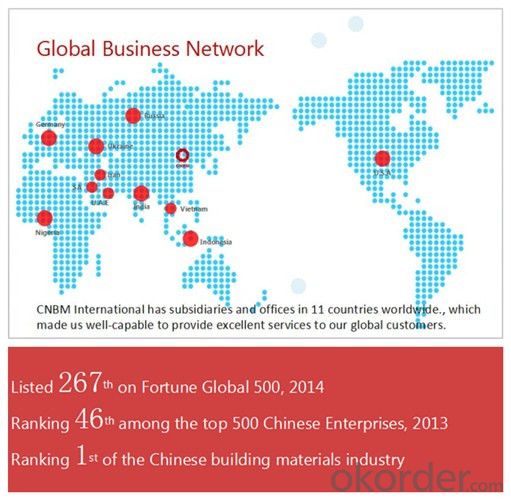
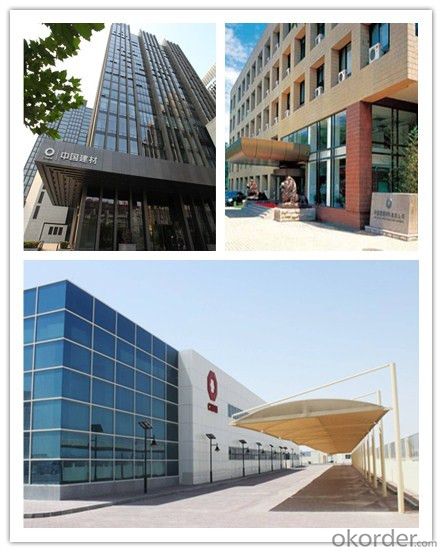
Packaging & Delivery of the Grade JIS G3141-SPCD-SD Galvanized Steel Coil
Packaging Detail | Sea worthy packing /as per customer's packing instruction |
Delivery Detail | 15 ~ 40 days after receiving the deposit |
Products Show:
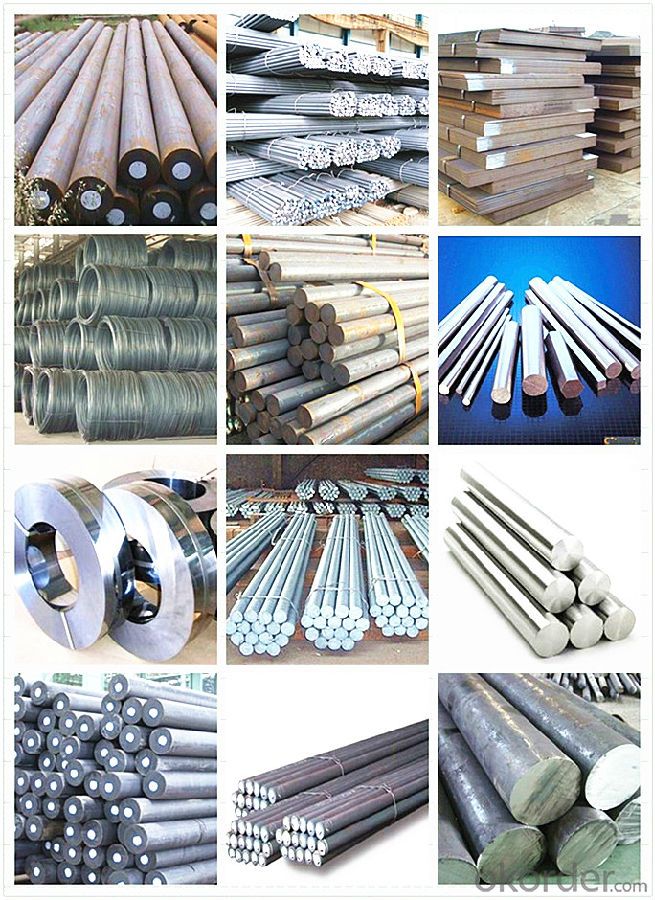
FAQ:
Are you a trading company or manufacturer? | Manufacturer |
What’s the MOQ? | 3 metric ton |
What’s your delivery time? | 15-35 days after downpayment received |
Do you Accept OEM service? | Yes |
what’s your delivery terms? | FOB/CFR/CIF |
What's the Payment Terms? | 30% as deposit,70% before shipment by T/T |
Western Union acceptable for small amount. | |
L/C acceptable for large amount. | |
Scrow ,Paybal,Alipay are also ok | |
Why choose us? | Chose happens because of quality, then price, We can give you both. Additionally, we can also offer professional products inquiry, products knowledge train (for agents), smooth goods delivery, excellent customer solution proposals. |
What's your available port of Shipment? | Main Port, China |
What’s your featured services? | Our service formula: good quality+ good price+ good service=customer's trust
|
Where are your Market? | Covering more than 160 countries in the world |
- Q: What are the main advantages of using special steel in the medical field?
- The main advantages of using special steel in the medical field are its high strength and durability, corrosion resistance, and compatibility with sterilization processes. Special steel can withstand harsh conditions and repetitive use without compromising its integrity, making it ideal for medical devices and surgical instruments. Additionally, its resistance to corrosion ensures a longer lifespan and reduces the risk of contamination. The compatibility with sterilization methods, such as autoclaving, ensures that medical equipment remains safe and sterile for patient use.
- Q: How is special steel machined?
- Special steel is machined using various techniques such as turning, milling, drilling, grinding, and cutting. These processes involve using specialized tools and equipment to shape and remove material from the steel, ensuring precise dimensions and smooth finishes. Additionally, advanced technologies like computer numerical control (CNC) machines are often used to automate the machining process, resulting in higher efficiency and accuracy.
- Q: How is special steel used in the oil and gas industry?
- Special steel is used extensively in the oil and gas industry due to its unique properties and high strength. It is specifically designed to withstand harsh environments, corrosion, and extreme temperatures. Special steel is used in various applications such as drilling equipment, pipelines, storage tanks, and valves, ensuring reliability and safety in the extraction, transportation, and processing of oil and gas.
- Q: What are the applications of special steel?
- Special steel has a wide range of applications across various industries such as automotive, aerospace, construction, and manufacturing. It is used in the production of high-performance components and structures that require exceptional strength, durability, and resistance to heat, corrosion, and wear. Special steel finds applications in engine parts, aircraft components, cutting tools, molds, and high-rise buildings, among others.
- Q: What are the safety benefits of using special steel?
- Using special steel provides several safety benefits. Firstly, special steel is known for its high strength and durability, which makes it resistant to deformation and fracture, reducing the risk of structural failures and accidents. Secondly, special steel is often designed to withstand extreme temperatures, corrosion, and wear, making it suitable for various harsh environments and reducing the chances of equipment malfunction or failure. Additionally, special steel is frequently used in safety-critical industries such as aerospace and automotive, where it undergoes rigorous testing and quality control measures to ensure its reliability and performance. Overall, the use of special steel enhances safety by providing reliable and robust materials for critical applications.
- Q: What are the different heat treatment processes used in special steel production?
- Some of the different heat treatment processes used in special steel production include annealing, tempering, quenching, normalizing, and hardening.
- Q: What are the different methods of surface anodizing for special steel?
- There are several methods of surface anodizing for special steel, including electrochemical anodizing, plasma electrolytic oxidation (PEO), and chromic acid anodizing. Each method has its own advantages and suitability for different steel types and desired outcomes. Electrochemical anodizing involves immersing the steel in an electrolyte solution and applying an electric current to form an oxide layer on the surface. PEO utilizes a high-voltage electrical discharge to create a thicker and more durable anodized layer. Chromic acid anodizing, on the other hand, utilizes a mixture of chromic acid and sulfuric acid to achieve corrosion protection and improved surface properties. The choice of method depends on the specific requirements and characteristics of the special steel being anodized.
- Q: What is the fatigue strength of special steel?
- The fatigue strength of special steel refers to its ability to withstand repeated loading and unloading cycles without failure or deformation. It is typically higher than that of regular steel due to its unique composition and manufacturing process, which enhances its resistance to fatigue and improves its durability in demanding applications.
- Q: What are the requirements for special steel used in packaging machinery?
- The specifications for the special steel utilized in packaging machinery can differ depending on the specific application and type of packaging machinery employed. Nonetheless, there are certain common expectations for this type of steel. To begin with, it is crucial for the special steel employed in packaging machinery to exhibit exceptional resistance to corrosion. This is because packaging machinery frequently comes into contact with various liquids, such as water, oils, and cleaning solutions. The corrosion resistance feature aids in preventing the steel from deteriorating or rusting when exposed to these substances, thereby ensuring the longevity and dependability of the machinery. Secondly, the steel should possess a high level of hardness and wear resistance. Packaging machinery often entails moving parts and components that are constantly subjected to friction and wear. Therefore, the steel employed in these parts must be capable of enduring repetitive contact and abrasion without undergoing significant wear or deformation. The high level of hardness also helps in preventing the formation of scratches or grooves on the surfaces, which could compromise the quality of the packaging. Furthermore, the special steel should possess good machinability and formability. Packaging machinery frequently requires complex shapes and intricate designs, necessitating steel that can be easily machined and formed into the desired shapes and sizes. This facilitates the manufacturing process and allows for the creation of precise and accurate components. Additionally, the steel should possess high tensile strength and toughness. Packaging machinery may be subjected to mechanical stresses and impacts during operation, and the steel used in its construction must be capable of withstanding these forces without fracturing or breaking. The high tensile strength ensures the structural integrity of the machinery, while toughness helps in preventing the formation of cracks or fractures under sudden loads or impacts. Lastly, the special steel employed in packaging machinery should be cost-effective and readily available. The cost of the steel should be reasonable and within the manufacturer's budget, without compromising the quality or performance of the machinery. Additionally, the steel should be readily available in the market to ensure a continuous supply for manufacturing purposes. In conclusion, the requirements for special steel used in packaging machinery encompass corrosion resistance, high hardness and wear resistance, good machinability and formability, high tensile strength and toughness, as well as cost-effectiveness. Fulfilling these requirements guarantees the durability, reliability, and efficiency of the packaging machinery in various industrial applications.
- Q: What are the safety considerations when handling special steel products?
- When handling special steel products, there are a few important safety considerations to keep in mind. Firstly, it is crucial to wear appropriate personal protective equipment (PPE) such as gloves, safety glasses, and steel-toed boots. This will help protect against potential injuries from sharp edges, heavy weight, or flying debris. Secondly, it is important to be aware of the weight and size of the special steel products being handled. Large or heavy items may require mechanical lifting equipment or assistance from others to prevent strain or injury. Additionally, it is necessary to inspect the special steel products for any defects or damage before handling them. This includes checking for cracks, fractures, or any other structural issues that could compromise their integrity. If any defects are found, they should be reported to the appropriate personnel and the products should not be used until they are deemed safe. Furthermore, special steel products may require specific handling techniques or tools. It is important to follow the manufacturer's guidelines and instructions to ensure safe handling. This may include using specialized lifting equipment, clamps, or supports to prevent accidents or damage. Finally, it is essential to have proper training and knowledge on how to handle special steel products safely. This includes understanding the weight limits of lifting equipment, knowing how to properly secure and stabilize the products, and being aware of any potential hazards or risks associated with the specific type of steel being handled. By following these safety considerations, the risk of accidents, injuries, or damage can be minimized when handling special steel products.
Send your message to us
Grade JIS G3141-SPCD-SD Galvanized Steel Coil
- Loading Port:
- Tianjin
- Payment Terms:
- TT OR LC
- Min Order Qty:
- 3 m.t.
- Supply Capability:
- 10000 m.t./month
OKorder Service Pledge
OKorder Financial Service
Similar products
Hot products
Hot Searches
Related keywords
